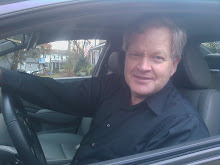Pundits Ponder Partisanship
Partisan bickering over Iraq was at fever pitch last week and the Sunday pundits reacted in varied ways.Punditwatch’s NBC affiliate reacted by pre-empting Meet the Press for Ryder Cup Coverage, perhaps sending a subliminal message about multi-lateralism.
ABC’s This Week had the most controversial coverage. Host George Stephanopolous interviewed Congressmen Jim McDermott, D-Wash, and David Bonoir, D-Mich, live from Baghdad. A seemingly incredulous Stephanopolous heard McDermott claim that the President was misleading the world and that he should take the Iraqis’ word at face value.
Bonoir brushed aside questions about Saddam Hussein’s past behavior. “We could go back and play the blame game. I wish you would focus on what’s happened to the people of Iraq—the children.”
During This Week’s roundtable, George Will called the McDermott-Bonoir comments, “The most disgraceful appearance in my lifetime.” ABC’s Michele Martin just shook her head, noting, “This is why the Democrats are having such a hard time.”
Face the Nation interviewed Democrats who oppose action against Iraq in varying degrees. Presidential hopeful, Governor Howard Dean of Vermont, endured the toughest questioning by host Bob Scheiffer. Dean claimed the President hadn’t made the case, but then conceded that the President didn’t have to “prove” his case.
Congressman Dennis Kucinich, D-Ohio, told Schieffer that calls to his office were running 9-1 against taking action against Iraq. “There’s no imminent threat. We should avoid doing anything preemptive.”
On Fox News Sunday, Senators John Breaux, D-La, and Chuck Hagel, R-Neb, made nice after the partisan words of President Bush and the emotional response by Majority Leader Tom Daschle, D-SD. Breaux suggested adapting a technique that worked with his grandchildren: a Senate “time-out.”
Hip President
Juan Williams of NPR, appearing on Fox, said the House and Senate were looking to make significant changes to the Iraq resolution. “I don’t think the President is down with all that.”
Kudos for Kennedy
Two conservative commentators went out of their way to praise Senator Ted Kennedy’s, D-Mass, speech opposing the administration on Iraq. On The News Hour, David Brooks of The Weekly Standard, said:
To me the most important speech was Kennedy's. I think it was the first time a major Democratic politician gave a very good, a very professional speech against the president's policies.
Fox News Sunday host Tony Snow called it a “civil and principled speech, a grown-up example for partisans on both sides."
Two Words for Gore
Pundits did not have much to say about Al Gore’s speech on Iraq, although George Will called it “moral infantilism.”
Stuck in the Democratic Craw
On Fox, The Weekly Standard’s Bill Kristol discounted the President’s homeland security comments as the real target of Daschle and the Democrats’ wrath. He claimed that a much earlier comment by the President about not wanting to run for re-election with a vote letting the UN determine American security had rankled them. That remark showed the Democrats that the President was, “Shooting with real bullets.”
Too Late Now
I think the Democrats made a tactical blunder. They would have done better if they’d stayed mum [on Iraq] until after the election. –NPR’s Mara Liasson, on Fox
Shields Airs Ad
Over the strenuous objection of the Chicago-Sun Times’ Bob Novak, who claimed it was a blatant political ad, host Mark Shields made this comment on Capital Gang:
I just hope during that Senate debate that senators will address the fact and the reality that there's exactly one child of a United States senator, Sergeant Brooks Johnson of the Army Airborne, son of Tim Johnson of South Dakota, who is in the military -- But they're voting to send other people's children... to combat. I hope that they think about it and reflect upon it.
Never Mind
On Friday I called politicians in about a half- dozen states and looked at all the survey data. There is nothing to suggest that there's been any movement to Republicans or to Democrats in the last 10 days, any change at all. And you talk to people out there, I think they still think that most voters are mainly interested in economic security. –Al Hunt, WSJ, on Capital Gang
The Heat's on The Torch
The campaign of embattled Senator Robert Torricelli, D-NJ, was analyzed on Capital Gang by Nicholas Acocella of the online publication Politifax:
He's got to go out to what I call the NPR liberals, the people who are offended by his alleged behavior. He's got to win them back to the Democratic Party and make sure that they vote. If he does that, he's got a fighting chance.
As for Torricelli’s GOP opponent making ethics charges stick to Torricelli, Acocella noted:
Doug Forrester's the ideal candidate to do this because he's a blank slate. I mean, he's a businessman, he was a deputy treasurer, an assistant treasurer in, in, in the state government. But he has no real political track record on which to hang anything.

